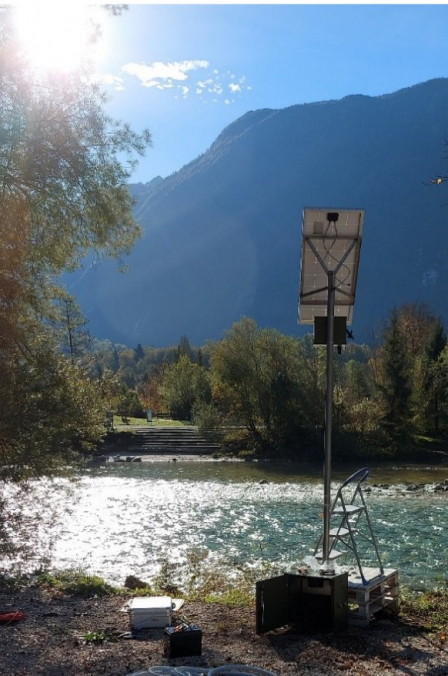(Part 1/2)
Monitoring the traffic flow of vessels in freshwaters is an innovative concept that enables the river management to track, regulate and limit the number of kayaks, canoes, rafts, and any other type of transportation floating on the waters.
After realizing that they couldn’t track the flow of their own vessels and that unauthorized watercrafts were present in their property, causing safety problems and damage to the habitat, the Soča Valley Tourist Center decided to start monitoring the traffic flow of vessels in order to regulate and limit the number of kayaks running on the Soča river.
Utilizing the Oracle Autonomous Database technology, the high-tech company Instrumentation Technologies developed a system for vessel monitoring powered by solar energy and designed to work in remote areas to help regulate the watercraft traffic flow where whitewater tourism is present.
The Vessel Monitoring System runs on hybrid (cloud-edge) computing
The advantages of hybrid (cloud-edge) computing compared to cloud computing:
» NO NETWORK ISSUES: Due to connectivity issues in remote areas, sending the video to the Cloud may not be possible and the data could be lost. Because only data are sent from the System to the user’s computer, a mobile signal is enough
» NO STORAGE ISSUES: Thanks to the real-time processing of the video into data, there’s no need for video storage on the device
» CONFORMITY WITH GDPR: Thanks to the data sent to the user’s computer, the video isn’t shared with anyone and this enables full compliance with GDPR rules
» AUTONOMY: Thanks to the sending of data instead of the video, only a small amount of battery power is used and the System can be self-sufficient by utilizing solar energy
• Software and hardware development
• AI recognition software
• Self-sufficient device powered by solar energy
• Oracle Autonomous Database
• Ready-available online statistics with APEX Oracle website tools
Click here to learn how the Vessel Monitoring System works (Part 2).
